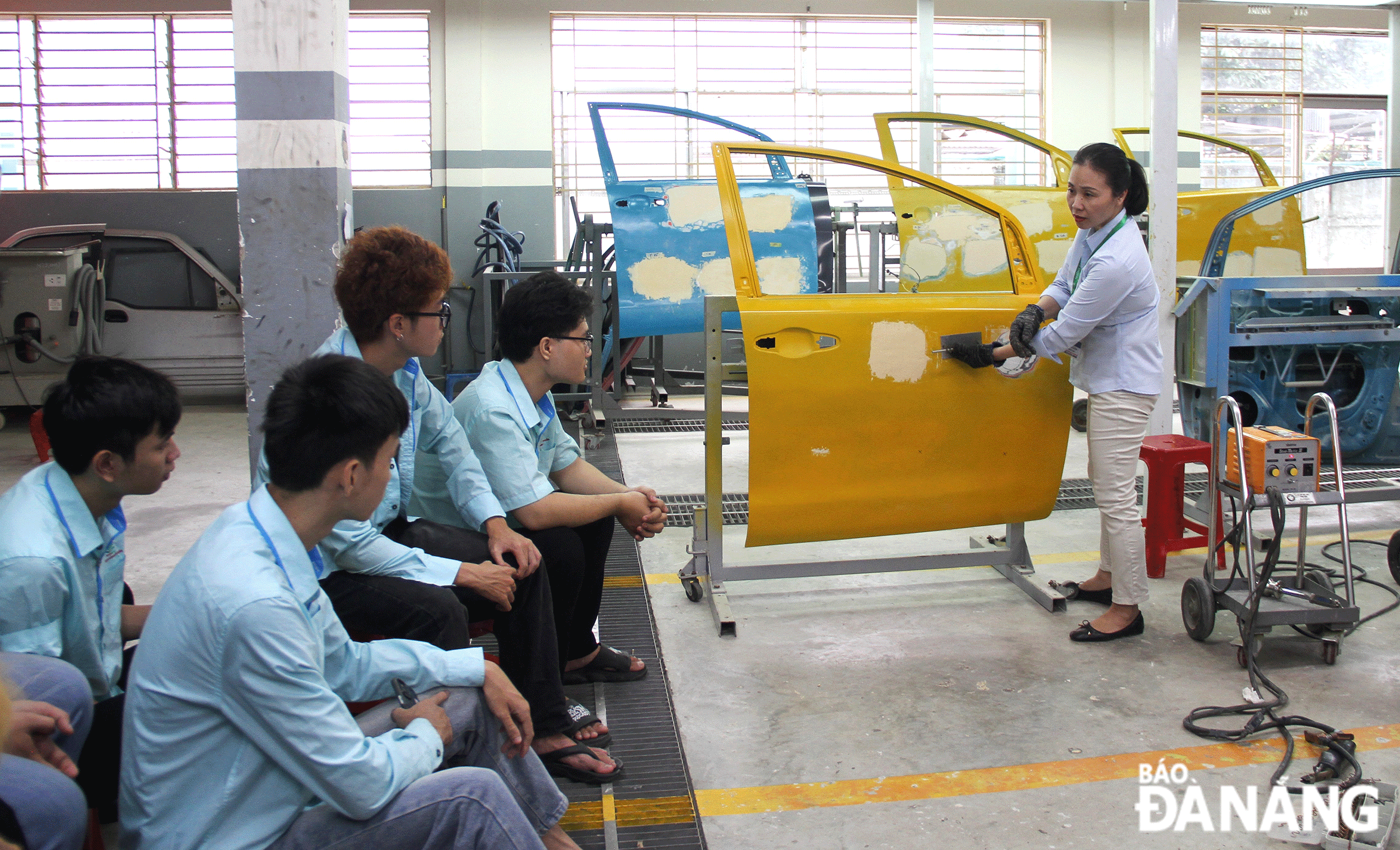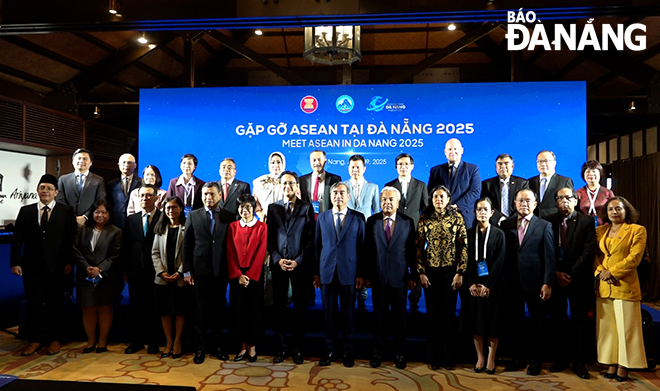Improving quality of vocational education
In order to improve the quality of vocational education, train high-quality human resources, and meet the development needs of the city's key economic sectors, vocational education institutions across Da Nang are constantly developing their teaching staff, building high-quality training programmes, investing in facilities, and boosting connections with businesses.
 |
| Vocational training institutions focus on developing and standardising the teaching staff. IN PHOTO: A lecturer at the Da Nang Vocational Training College instructing students in welding techniques. Photo: LAM PHUONG |
Standardising teaching staff
Under Directive No. 21-CT/TW of the Secretariat of the Central Committee of the Communist Party of Viet Nam on continuing to innovate, develop, and improve the quality of vocational education by 2030, with a vision to 2045, vocational education institutions citywide have taken a number of solutions to improve the quality of training.
According to Vice Principal of the Da Nang Vocational Training College Nguyen Thanh Thao, the school currently has 125 lecturers, so improving the quality of training and standardising the teaching staff are very necessary. Every year, the school organises training courses to improve professional capacity, foreign languages, and information technology and soft skills for its lecturers.
With a team of lecturers teaching key professions at the international and regional levels, the school has concentrated on promoting international cooperation to develop the teaching staff through the exchange of experts and lecturers between countries in the region and the world; and expanding cooperation with a number of countries with developed vocational education in ASEAN, South Korea, Japan and Germany to send teachers for training or invite foreign experts for training.
At the same time, the school has enhanced cooperation in scientific research activities and experience sharing in innovating teaching methods and applying scientific and technological achievements to teaching activities.
The Central College of Transport V is one of the public colleges approved by the Ministry of Labour, War Invalids and Social Affairs as a key industry and profession for the 2016-2020 period and with a vision to 2025.
The school currently has 149 teachers, including 5 PhDs and 104 Master degree's holders. According to Mr. Nguyen Van Tuoi, Principal of the school, in order to improve the quality of the teaching staff, the school creates conditions for lecturers to study and practice at enterprises and professional agencies to experience the actual production environment, and to update new skills and technologies from the labor market.
At the same time, there are policies and regimes to encourage lecturers to self-study, develop expertise, apply technology, innovate teaching methods, actively conduct scientific research, and design teaching equipment.
Regarding the work of improving the quality of the teaching staff, Deputy Director of the Department of Labour, War Invalids and Social Affairs Nguyen The Tuan said that in 2024, vocational education institutions sent 1,298 teachers and managers to attend training courses to improve their professional qualifications, and proactively invited experts to train in integrated teaching methods.
Every year, the department organises a vocational education teacher training conference to promote the emulation movement of good teaching, encourage and motivate teachers to study and practice to improve their professional qualifications, contributing to standardising the teaching staff in the city.
Improving training quality
According to Mr. Nguyen Van Tuoi, the school has increased surveys of businesses, received feedback from learners and businesses, and studied industry trends to update and improve training programs to closely follow market needs.
At the same time, it has invited experts, businesses, managers, and excellent teachers from educational institutions to participate in building and improving training programmes, contributing to improving the quality of human resources and meeting social needs.
At the Da Nang Vocational Training College, to improve the quality of training, the school proactively connects with businesses, sends students for internships, invites businesses to teach at the school, cooperates in training according to business orders, and sends lecturers to study and learn about the reality at businesses.
Ngo Tran Thi Tuyet Minh, a final year student majoring in Fashion Sewing at the Da Nang Vocational Training College, said that "I am interning at the March 29 Textile JSC to learn how to operate and use many types of specialised machinery in the garment industry, how to cut and sew, and how a professional sewing line works, thereby consolidating knowledge and skills to conveniently find a job after graduation”.
According to Mr. Nguyen Thanh Thao, to develop into a high-quality school, in addition to the regular training programme, the school is training 3 high-quality professions that meet international standards according to the transfer programme from Australia, Germany and France: mechatronics, industrial electricity, and automotive technology. These programmes have higher output standards in terms of professional knowledge, skills, professional qualities, and foreign language and information technology proficiency than usual, creating a source of high-quality, professional labour according to international standards for the domestic and foreign labour markets.
Reporting by LAM PHUONG - Translating by M.DUNG








